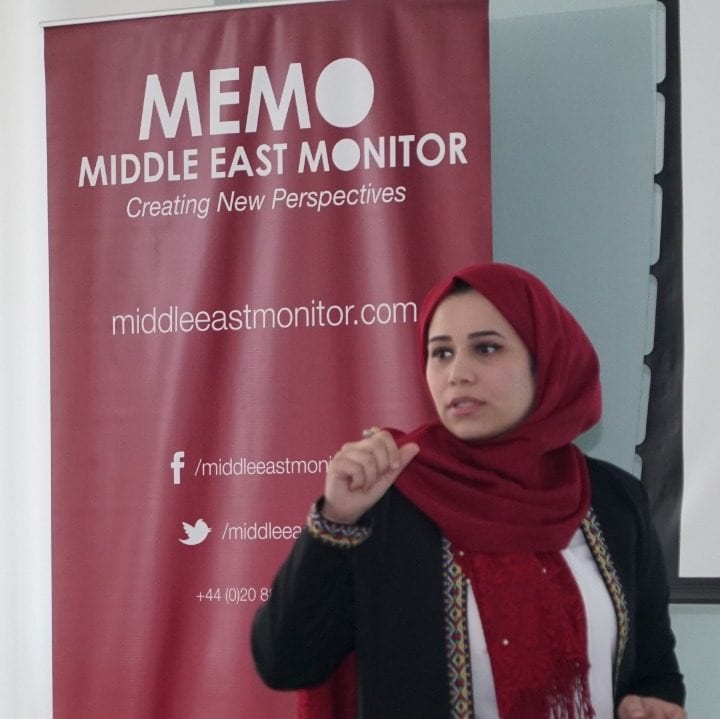A campaign led by segments of the Zionist lobby in Brazil has launched a series of public attacks against Professor Arlene Clemesha, a prominent scholar of Arab History at the University of São Paulo (USP). Renowned for her academic work and public advocacy in support of the Palestinian cause, Clemesha has become the target of an orchestrated smear campaign following recent public appearances in which she denounced what she describes as “the genocide in Gaza”.
Clemesha is a well-known researcher specialising in Contemporary Arab History, the History of Palestine and Brazil–Arab world relations. She is affiliated with USP’s Department of Oriental Literature and is the author of Marxism and Judaism: History of a Difficult Relationship (Boitempo), now in a newly released revised edition. Clemesha has been actively promoting the new edition through public debates and interviews, including a high-profile appearance on the Ilustríssima podcast by Folha de São Paulo.
In an exclusive interview for Middle East Monitor (MEMO), Clemesha explained the context behind the recent wave of attacks.
“What triggered this latest and extremely vicious wave of online threats from radical right-wing Zionist groups in Brazil,” she said, “was that podcast interview, where I exposed the growing fissures in the Zionist consensus which has dominated Jewish communities since the mid-1950s.”
READ: 420,000 Palestinians newly displaced in Gaza since Israel shattered ceasefire: UNRWA
During the podcast, Clemesha addressed topics ranging from 19th-century anti-Semitism to contemporary Islamophobia. She also critiqued the International Holocaust Remembrance Alliance (IHRA)’s working definition of anti-Semitism, distinguishing between legitimate concerns about racism against Jews and the political manipulation of the term to silence anti-Zionist perspectives.
“I spoke about the importance of distinguishing anti-Semitism—a form of racism against Jews—from anti-Zionism, which is opposition to a political-ideological tendency,” Clemesha explained. “But the sheer fact that a non-Jew like myself was speaking about issues critical to local Zionist institutions—issues they wish to control—was too much for them. And so, they began a campaign to try to silence me.”
Clemesha noted that a new generation of Jewish voices in Brazil is emerging with strong anti-Zionist stances: “We’ve seen growing numbers of young Jewish people taking on active non-Zionist and anti-Zionist activism and protesting strongly against the Palestinian genocide.”
Professor Clemesha recently participated in the inaugural session of the Palestine and Middle East course offered by the Dinarco Reis Foundation, affiliated with the Brazilian Communist Party (PCB). There, as in many public forums, she denounced Israeli military actions in Gaza. Though grounded in international human rights language, her statements have been met with severe backlash.
The PCB issued a public note of solidarity, condemning the attacks as politically and ideologically motivated. “The political and gender-based violence against a respected USP researcher only highlights the reactionary nature of those who stand with the Israeli government,” the party stated.
Clemesha also emphasised the power and reach of local Zionist institutions in Brazil: “They have convinced the municipalities of São Paulo and Rio de Janeiro, and the state governments of Rio de Janeiro, São Paulo and Rio Grande do Sul, to adopt the IHRA’s working definition of anti-Semitism. They’re even pushing to change public school materials and organise Holocaust essay contests in public schools under the logic of the new definition.”
The professor warned that this lobbying environment contributes to a climate of fear and self-censorship.
“Professors and other professionals who are targeted do tend to feel vulnerable, scared of losing their jobs,” she said. “One of the worst forms of censorship is when the fear of retaliation silences you even before you speak. So yes, free speech is under threat in Brazil.”
Despite the backlash, Clemesha remains defiant. “Silencing is not an option,” she told MEMO. “And the expressions of solidarity I’ve received—from political parties, activists, writers, human rights organisations and especially from students who organised an open letter—have been deeply reassuring.”
Although internal discussions are reportedly underway, the USP has yet to issue an official statement on the case. Meanwhile, the open letter in support of Clemesha continues to circulate, gathering thousands of signatures from academics, public intellectuals and concerned citizens.
The attacks on Professor Clemesha highlight a growing pattern in Brazil and globally, where pro-Palestinian voices in academia face increasing efforts to suppress dissent under the pretext of combating anti-Semitism. As tensions around the Gaza conflict persist, so too does the struggle over who gets to speak and who is silenced.
On the other hand, there are also steadfast efforts by activists, academic communities and civil society organisations working in solidarity with Gaza and the Palestinian people. These groups continue to challenge censorship, defend academic freedom and advocate for justice and human rights in Palestine, ensuring that critical voices are not silenced.
READ: Gaza: 200,000 patients face death due to crossings closure
The views expressed in this article belong to the author and do not necessarily reflect the editorial policy of Middle East Monitor.


![Arlene Clemesha is wearing the Palestinian keffiyeh during her participation in the commemoration of 'Palestinian Land Day' at the São Paulo Parliament on 4 April, 2025 [Ratib Al Safadi]](https://i0.wp.com/www.middleeastmonitor.com/wp-content/uploads/2025/04/Screenshot-2025-04-19-at-10.13.46-e1745054063782.png?fit=1057%2C710&ssl=1)








